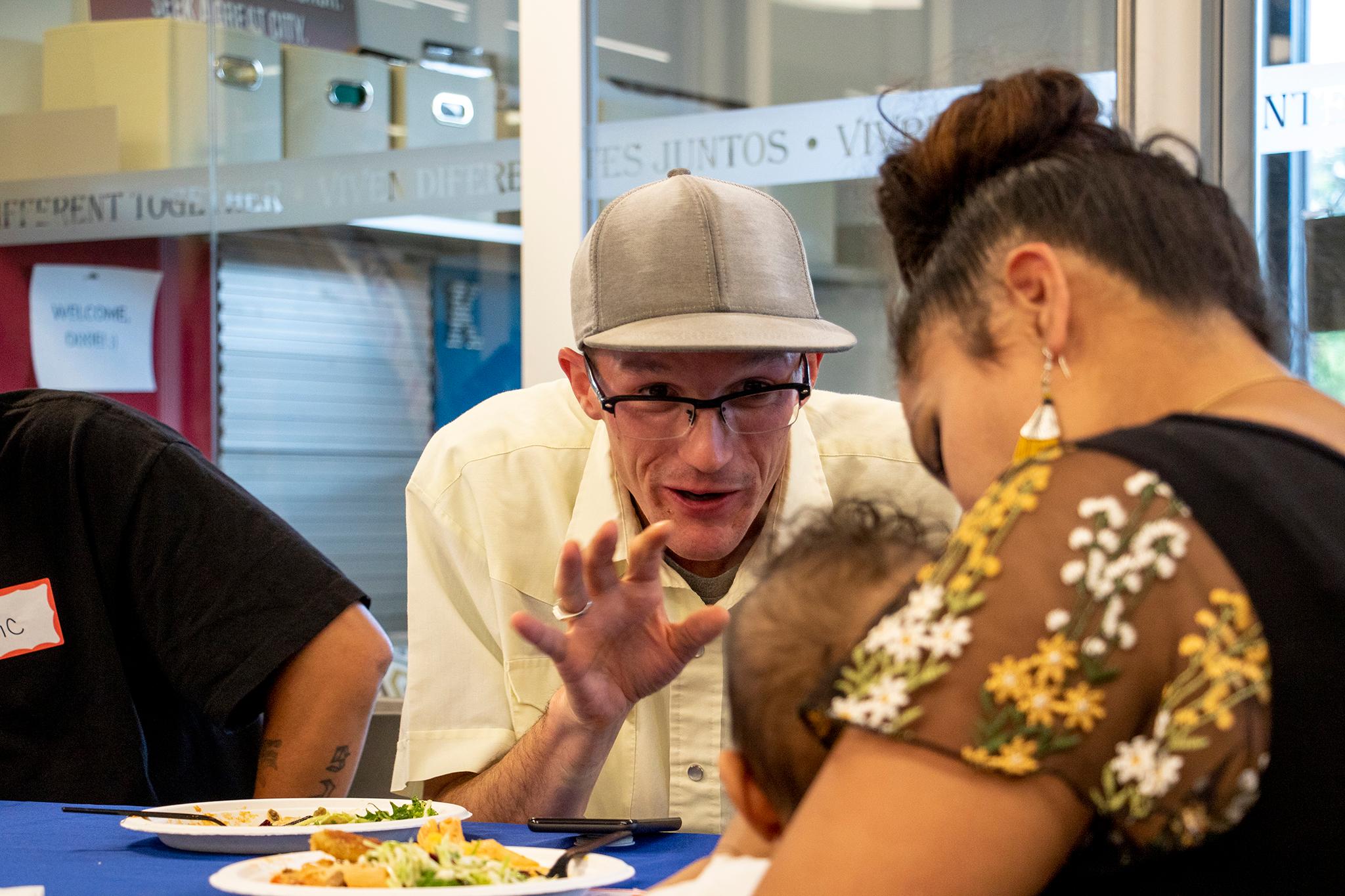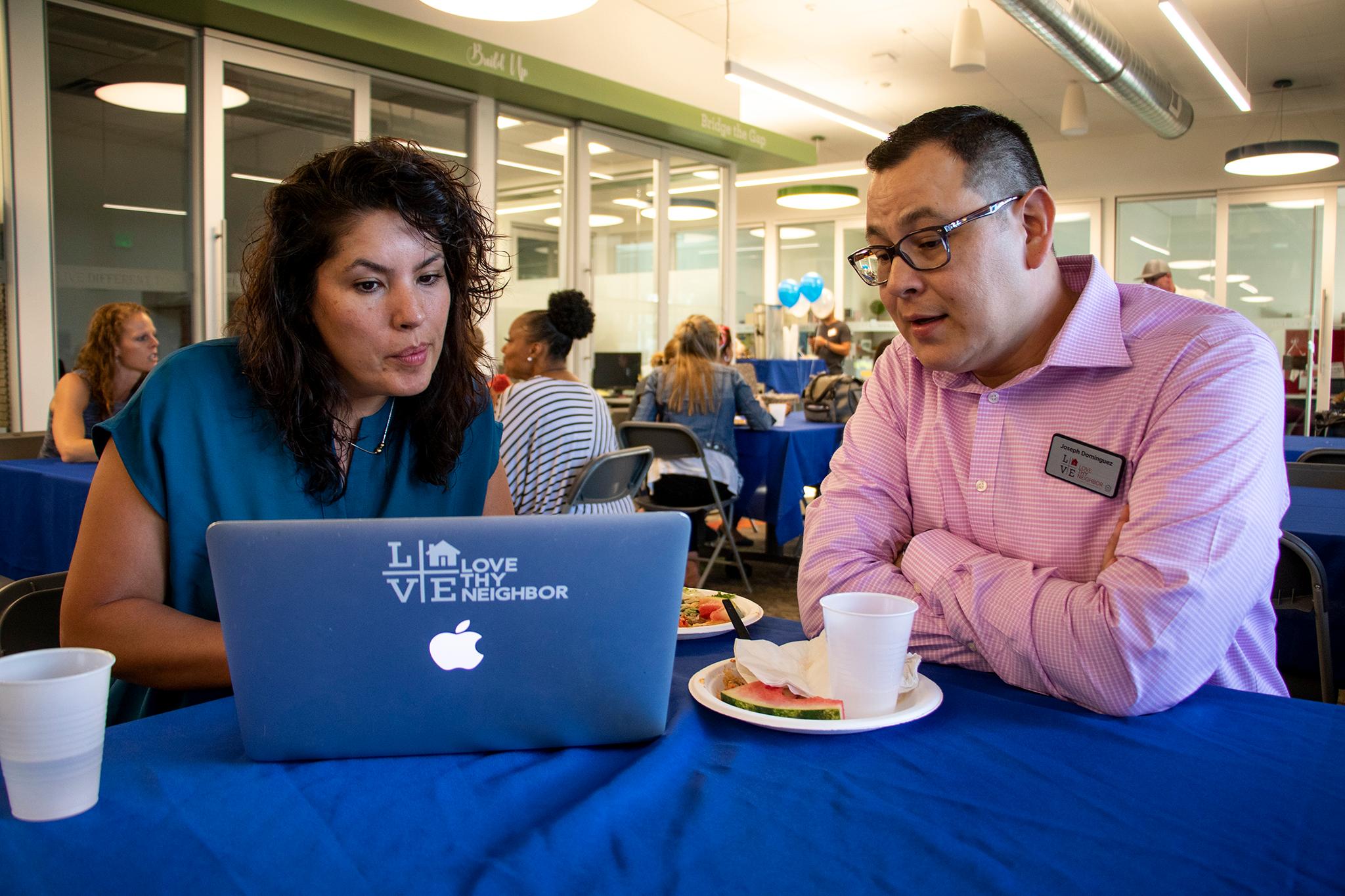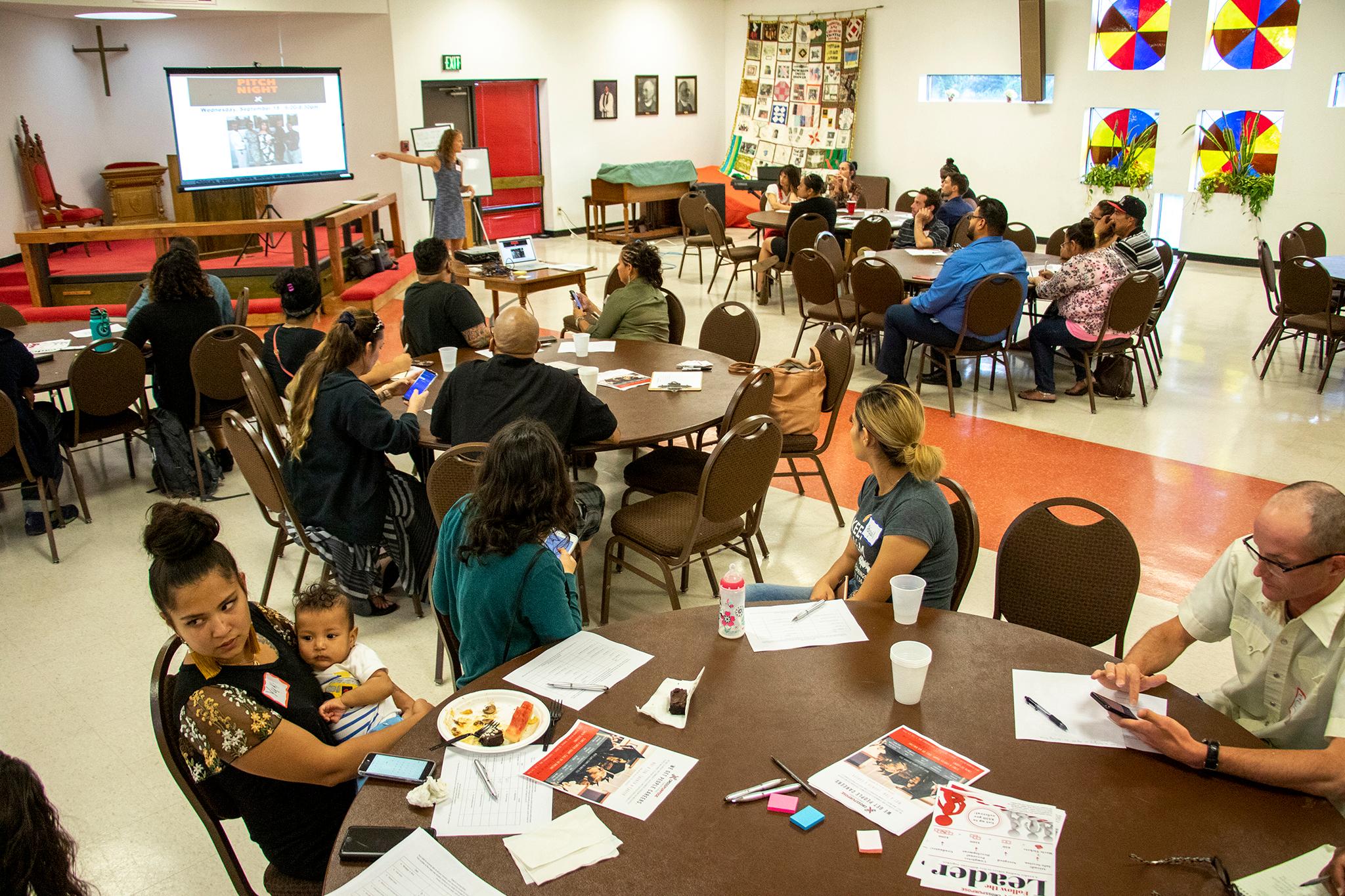The two dozen or so students had questions ranging from the basic to the sophisticated. How are income limits determined for below-market housing? What influences credit ratings? Why do lenders set certain requirements?
Joseph and Jessica Dominguez, whose Love Thy Neighbor real estate company specializes in getting low- and moderate-income families into their own homes, answered as many questions as they could in the meeting room at Shorter Community AME Church in Skyland and offered one-on-one follow-up sessions.
The realtors had a question of their own: What did the class see as the benefits of buying a home? Eager hands shot up. One man said owning his own house would mean having a room to offer a friend in need.
He and others in the class had struggled themselves and knew what it meant to get help. They were graduates of career training programs offered by CrossPurpose, but the mid-August class at Shorter was all about home-buying. It was a first for CrossPurpose, founded in 2008.
Jason Janz, CrossPurpose's chief executive officer and one of its founders, said putting his graduates on the path to buying homes was a natural step for his nonprofit. CrossPurpose started with programs like Cub Scouts for fatherless boys, expanded to support people exiting prison and grew to see itself as an anti-poverty organization.
"The key to intergenerational wealth in our culture is homeownership," Janz said. "This is generational, stop-the-cycle type change."
CrossPurposes's signature career development programs offers six months of free, intensive training in legal services, nursing, carpentry and other fields, as well as mentoring and networking support for job applications and interviews, among other areas.
Joseph Camp arrived for the homeownership class looking as if he were early for a job interview, dressed so carefully that even his baseball cap appeared pressed.
Camp had seen a flyer about CrossPurpose while serving a three-year sentence at Arrowhead Correctional Center in Cañon City. No one at the prison could tell him much about CrossPurpose, so he contacted the organization. He said he was impressed with "the fact that they came up to the prison within a week."
Until then, he had not had much hope for life after prison, where he said he was sent for threatening law enforcement.
"I had told myself I was going to fight my way out of jail and then kill myself," said Camp, 35.
Instead, after he was released to a Denver halfway house last September, he started CrossPurpose's classes, which met for several hours most weekdays plus evening sessions on Wednesdays. Camp had grown up in 65 foster care homes before aging out at 16 to a period of homelessness. His CrossPurpose classmates and the organization's staff became family.
Camp, who is still on parole, recently began working as a legal secretary for a firm that specializes in contracts. CrossPurpose has helped him find affordable rental housing. Owning a home had always felt like a fantasy, but because he trusted CrossPurpose, he came to the homeownership class thinking his dream might become a reality.

"I want to have a family and have something for my family," he said. "I don't want to have a child in my shoes. I want them to have a stable environment."
One of his biggest fears is losing housing, which he thinks is more likely in an apartment where the rent might unexpectedly increase.
"The streets scare me," he said. "Because it's the streets that lead to conduct I need to do to survive. Conduct like stealing food."
Camp earns $22,000 at the law firm. He learned at the homeownership class that his salary places him between 30 and 40 percent of the area median income, well below the maximum of 80 percent set by many affordable housing programs. Some programs also set minimums, and Camp might need to wait for a raise or two before being able to qualify. After the session at Shorter, Camp said he would make an appointment for a one-on-one with the Dominguezes to learn more.
Joseph and Jessica Dominguez work with properties intended to stay affordable in expensive markets.
Partners on the homes included the Denver-based Urban Land Conservancy which makes land available on 99-year leases. By forgoing the significant cost of land purchases, developers working with the conservancy can pass the savings on to home buyers. That's similar to a land trust model, in which a group of homeowners co-own the land beneath their houses.
The Dominguezes also outlined for Camp and his fellow classmates how Habitat for Humanity works. The nonprofit keeps cost down in part by incorporating volunteer labor. Habitat also requires buyers to help build their own homes.
"Do you really have to build your own home?" one concerned student asked. The realtors assured them that homeowners are trained and supervised and their work has to pass inspection.
Jessica Dominguez is a former Denver Public School teacher who became so concerned with how housing insecurity impacted her students that she began researching affordable housing options. Eventually she founded Love Thy Neighbor with her husband.
The Dominguezes were connected to CrossPurpose through the faith-based Denver Leadership Circle. Janz, CrossPurpose's chief executive, said the couple offered graduates of his program "top tier service" as they explored homeownership.

"Yes, I'm a person of faith," Jessica Dominguez had told the CrossPurpose class.
"People of faith, we have to mobilize and put our faith into action," she told Denverite after the class.
She added that people come to her unsure of how to start a conversation with a realtor or a lender about buying a home. One recent caller said to her: "Can you just tell me my first question?"
"These people deserve an opportunity," Dominguez said.












